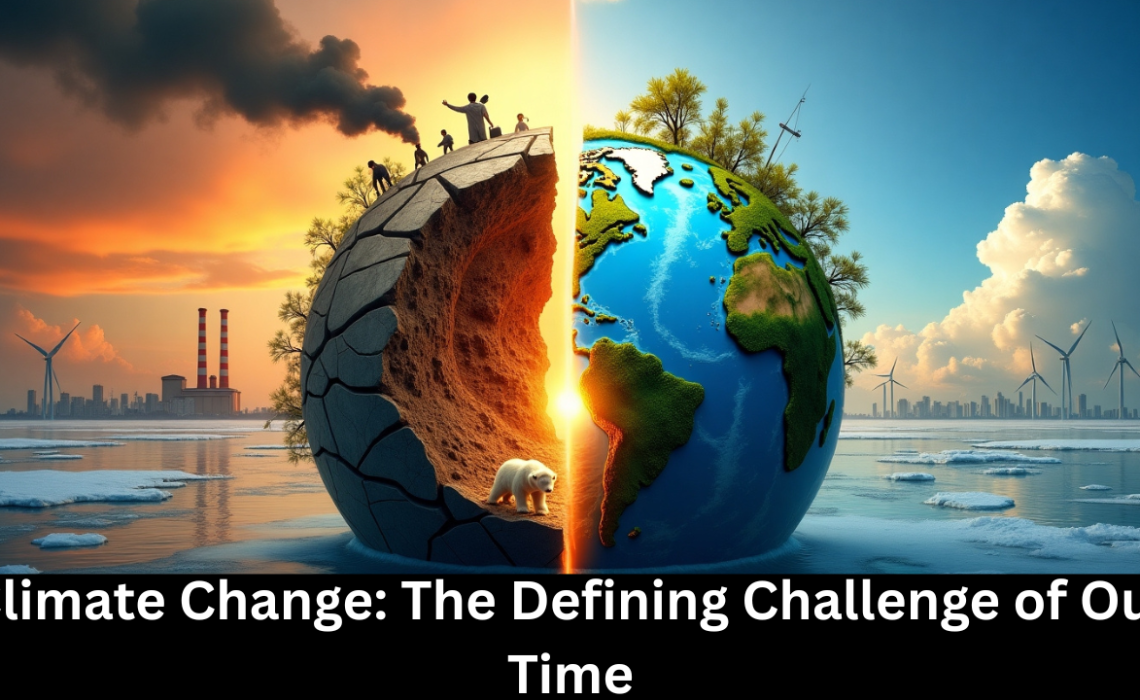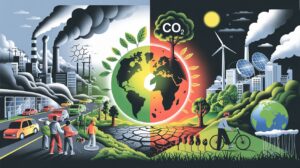Climate change is no longer a distant threat—it is a present reality reshaping ecosystems, economies, and societies worldwide. Driven primarily by human activities, this crisis has escalated into the most urgent challenge humanity faces, demanding immediate and collective action. From melting polar ice caps to intensifying wildfires, the consequences of a warming planet are undeniable, interconnected, and accelerating at an unprecedented pace.
Table of Contents
ToggleThe Science Behind the Crisis
At its core, climate change is fueled by the accumulation of greenhouse gas emissions (GHGs), such as carbon dioxide (CO₂) and methane, in the atmosphere. These gases trap heat, causing global warming. Since the Industrial Revolution, human reliance on fossil fuels—coal, oil, and gas—has spiked CO₂ levels by over 50%, pushing Earth’s average temperature up by 1.2°C. The Intergovernmental Panel on Climate Change (IPCC) warns that surpassing 1.5°C will unleash irreversible damage, including catastrophic rising sea levels, ocean acidification, and extreme weather events.
Impacts on People and Planet
The ripple effects of climate change are vast and devastating:
- Environmental Collapse: Deforestation and habitat destruction are accelerating biodiversity loss, with species vanishing 1,000 times faster than natural rates. Coral reefs, vital marine ecosystems, face bleaching due to warming oceans.
- Human Toll: Vulnerable communities, often least responsible for emissions, bear the brunt. Droughts in Africa, floods in South Asia, and hurricanes in the Caribbean exemplify climate injustice, where marginalized populations suffer disproportionately.
- Economic Disruption: By 2050, climate impacts could cost the global economy $23 trillion annually, destabilizing agriculture, infrastructure, and health systems.
The Human Factor: Causes and Responsibilities
While natural processes influence climate, human activities are the primary drivers. The carbon footprint of industrialized nations, rampant deforestation, and energy-intensive lifestyles perpetuate the crisis. The fossil fuel industry remains a key contributor, accounting for 75% of global GHG emissions. Yet, systemic inertia and political short-termism stall progress.
Pathways to Solutions
Addressing climate change requires a dual approach: mitigation (reducing emissions) and adaptation (building resilience). Key strategies include:
- Transition to Renewable Energy: Scaling up solar, wind, and hydropower to achieve net-zero emissions by 2050.
- Climate Policy: Strengthening frameworks like the Paris Agreement and enforcing stricter carbon pricing.
- Sustainable Practices: Promoting circular economies, reforestation, and climate-resilient infrastructure.
- Equity and Justice: Ensuring climate justice by supporting developing nations with funding and technology transfers.

A Call to Collective Action
Governments, corporations, and individuals all have roles to play. While systemic change is critical, individual choices—reducing waste, adopting clean energy, and advocating for policy reform—also matter. The 2020s are a decisive decade: either we curb emissions drastically or face irreversible tipping points.
Read also:What Are 10 Ways to Reduce Global Warming ?
Conclusion: Climate Change
Climate change is not just an environmental issue—it is a humanitarian, economic, and existential crisis. The science is clear, the solutions are within reach, and the cost of inaction is unthinkable. By embracing innovation, equity, and global cooperation, we can redefine our future. The time to act is now.
Explore Further:






